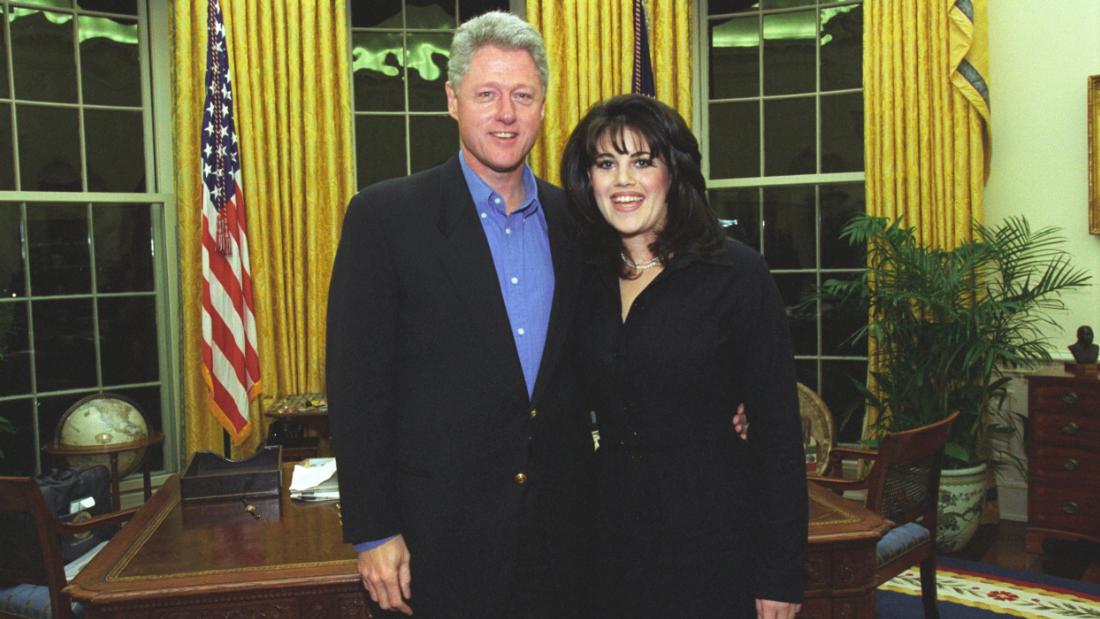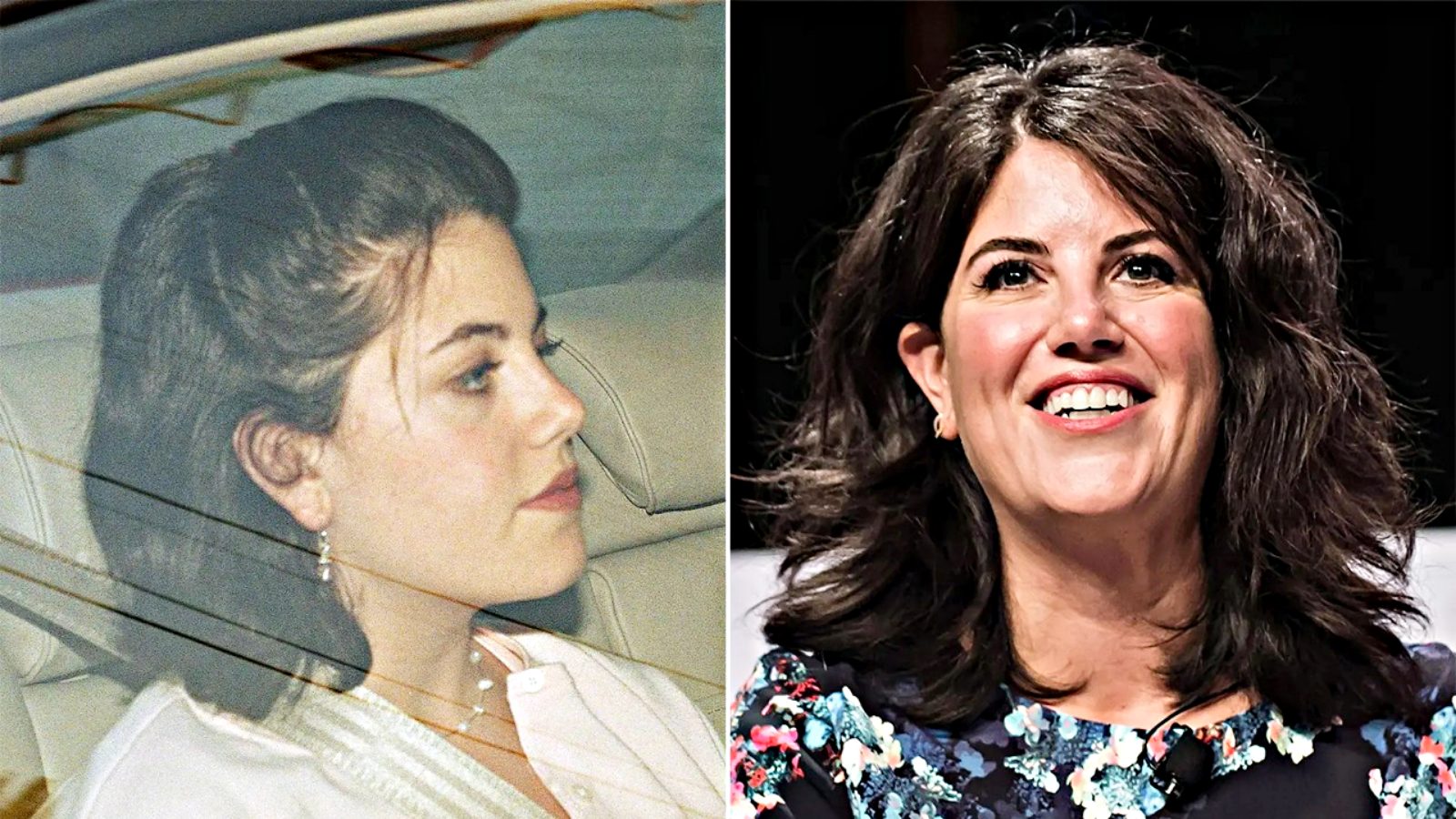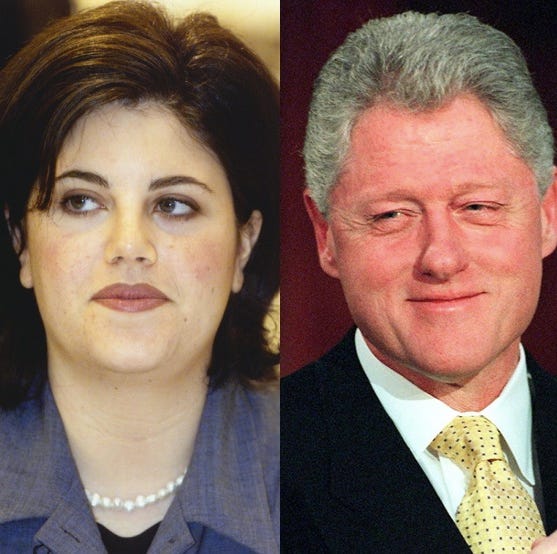Can a single affair truly bring down a presidency? The saga of Bill Clinton and Monica Lewinsky stands as a stark reminder of how personal indiscretions can ignite a firestorm of political and social consequence, forever altering the course of a nation's history.
The affair, which began in 1995, when then-President Clinton was 49 and Lewinsky was 22, unfolded in the hallowed halls of the White House, a setting that amplified the already sensitive nature of their relationship. The details of their encounters, though initially whispered, soon became headlines, dominating news cycles and captivating the public's attention. The relationship, which lasted for approximately 18 months, concluding in 1997, was marked by a significant age difference and a power dynamic that would later be scrutinized. From an anonymous tip to an impeachment, the story of Bill Clinton and Monica Lewinsky is a complex narrative of secrecy, betrayal, and the struggle for truth. The scandal, which first made headlines in January 1998, would come to define the latter years of Clintons presidency and leave an indelible mark on American political discourse.
| Attribute | Details |
|---|---|
| Full Name | Monica Samille Lewinsky |
| Born | July 23, 1973 |
| Nationality | American |
| Known For | Becoming internationally known in the late 1990s due to her affair with U.S. President Bill Clinton. Later became an activist. |
| Education | Undisclosed, but held various positions after the scandal. |
| Positions Held After Scandal |
|
| Notable Actions |
|
| Reference | Britannica - Monica Lewinsky |
The initial response from President Clinton was one of denial. As the scandal began to brew, with rumors swirling and whispers growing louder, he publicly declared, "I did not have sexual relations with that woman, Miss Lewinsky." This statement, made in the face of mounting evidence, would later prove to be a pivotal moment, setting the stage for the subsequent investigations and the eventual impeachment proceedings. The public's perception of Clinton, already tainted by the earlier Whitewater controversy, began to erode further as the details of the relationship emerged. The denial, a clear attempt to shield himself from the burgeoning scandal, ultimately served to intensify the scrutiny and fuel the firestorm that was about to engulf his presidency.
However, the walls of denial would eventually crumble. Months later, Clinton admitted that his relationship with Lewinsky was "wrong" and "not appropriate." This confession, a stark contrast to his earlier denials, marked a significant turning point in the scandal. Appearing serious and contrite, Clinton addressed the American people, stating, "I misled people, including my wife." This admission, broadcast on national television, was a clear acknowledgement of his wrongdoing. It was a moment of both vulnerability and contrition, but the damage was already done. The public's trust was shattered, and the political repercussions were only beginning.
- Streameast Your Guide To Free Live Sports Streaming
- Archie Manning Arch Manning Age Stats Family Insights
The investigation, led by Independent Counsel Kenneth Starr, intensified. Starr issued subpoenas for a number of individuals, seeking to uncover the full extent of the relationship and whether any perjury or obstruction of justice had occurred. Starr's investigation was thorough, meticulous, and, at times, controversial. He sent 36 boxes of evidence on the Lewinsky scandal to the Congress, which would later be used in the impeachment proceedings. The legal and political ramifications of the investigation were immense, consuming the nation's attention and dividing public opinion.
During the time of their relationship, Lewinsky was transferred to a job at the Pentagon. It was there that she confided in coworker Linda Tripp about her affair with the president. Tripp, in a move that would prove highly consequential, secretly recorded Lewinsky's confidential phone calls detailing the relationship. These recordings, which were later turned over to Starr, provided crucial evidence and ultimately became a cornerstone of the investigation. Tripp's actions, which were both legally and ethically questionable, added a layer of complexity to the scandal, raising questions about privacy and the role of whistleblowers.
The political landscape was rapidly changing. On May 4, 2018, the controversy took an even more definitive turn when Clinton first denied the allegations as the scandal began to erupt. The accusations, initially fueled by an anonymous tip, quickly escalated, drawing in the media and sparking intense public interest. The timing of this moment, coinciding with increased scrutiny of Clinton's behavior, ensured that the scandal would become a major point of discussion for years to come. The denials, which were subsequently reiterated, only served to intensify the narrative, leading to further investigation and public debate.
In a historic move, President Clinton was brought before the House of Representatives. The House of Representatives voted to impeach President Bill Clinton. The charges, centered around perjury and obstruction of justice, were a direct result of the investigation into the Lewinsky affair. The impeachment proceedings, only the second time in U.S. history that a president had faced such charges, reflected the gravity of the situation and the profound impact of the scandal on the country's political system. This was a significant step in a series of events that would shake the foundations of American politics. The nation was left questioning the integrity of the presidency and the standards of conduct expected of its leaders.
The impeachment trial that followed in the Senate ultimately resulted in Clinton's acquittal. However, the stain of the scandal remained. In an attempt to mend the wounds, Clinton issued a public apology for his affair with Lewinsky. This was not just a personal regret, but also a calculated effort to mitigate the political damage and repair his image. The apology, although coming late in the process, showed a level of remorse that was crucial for him to maintain his position and continue serving as president.
The aftermath of the Clinton-Lewinsky scandal left a lasting impact on American society. It highlighted the complexities of power, morality, and public perception. The scandal also raised important questions about privacy, the role of the media, and the ethics of political behavior. The Clinton-Lewinsky story underscores how deeply the actions of individuals can shape political and social history. The events, from the clandestine encounters to the impeachment trial, remain a significant chapter in American history, remembered and debated for decades to come. The scandal forced a national reckoning, prompting reflection on both the conduct of political leaders and the expectations of the public.
The scandal prompted a renewed focus on the personal lives of politicians and the potential impact of these lives on their ability to lead. The Clinton-Lewinsky affair was often depicted in popular culture, cementing its place in the public's collective memory. The event remains a powerful reminder that leadership involves not only making policy decisions, but also maintaining the trust and confidence of the people. The consequences of Clinton's actions, along with the reactions of the public, are key to understanding the broader political and social implications of the scandal. The entire episode is a stark illustration of the entanglement of personal and public lives in the modern era.
The legacy of the scandal also includes the legal and ethical debates it sparked. The legality of Tripp's recordings and the methods employed by Starr were heavily debated. The debate over whether Clintons actions warranted impeachment continues. These discussions revealed the need for clear guidelines in addressing misconduct by public officials. This scandal has shaped subsequent discussions around political ethics, particularly regarding issues of perjury and obstruction of justice. The legacy of the Clinton-Lewinsky scandal continues to impact American politics and society.


